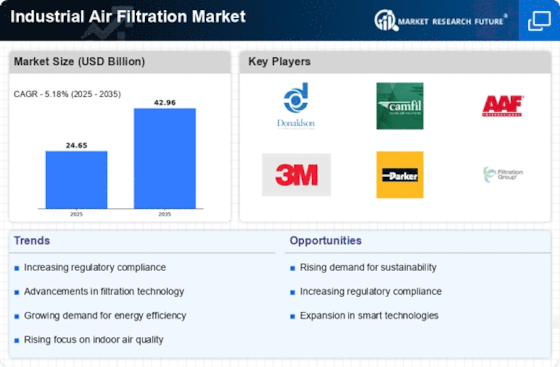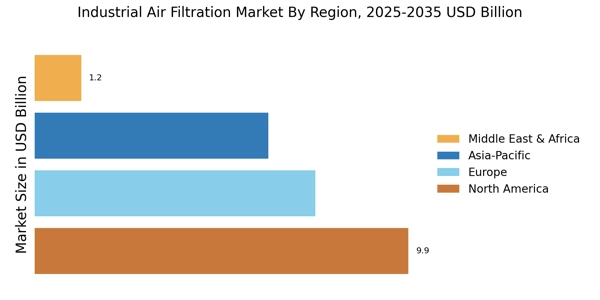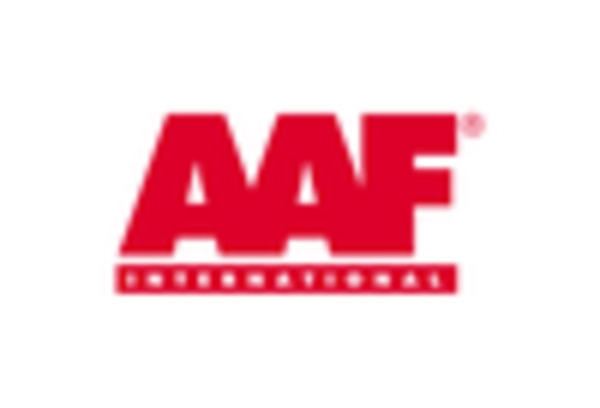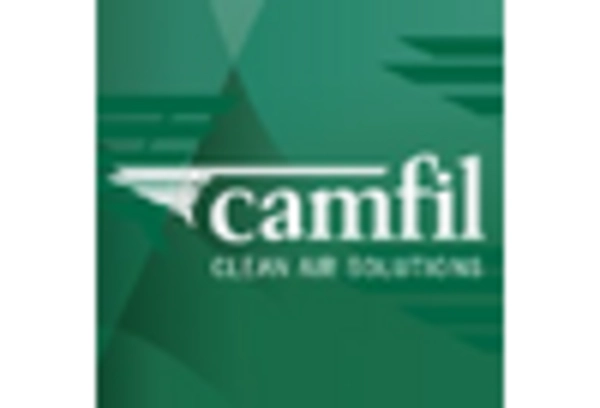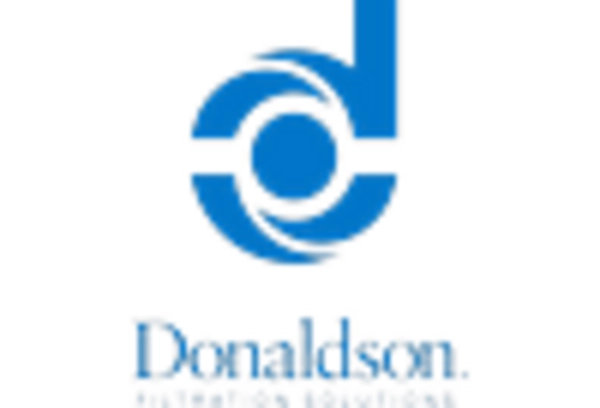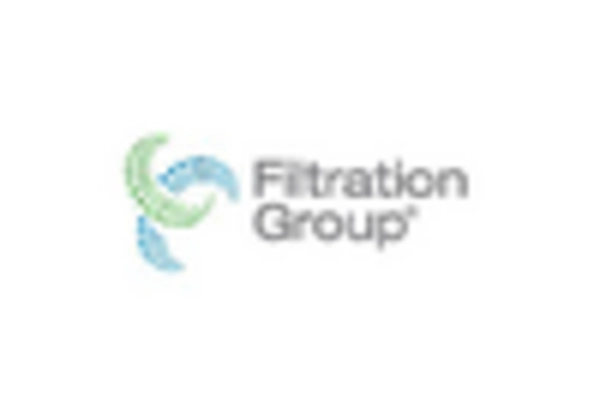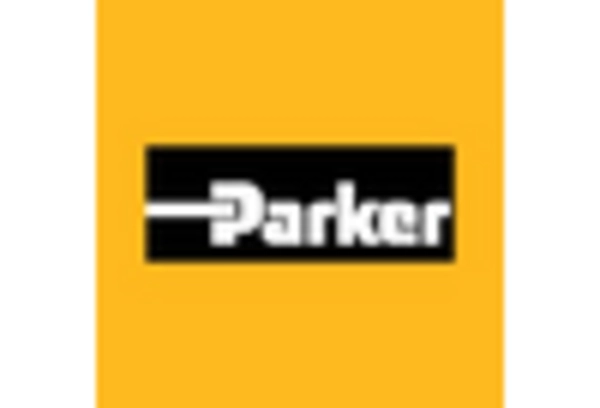Regulatory Compliance and Standards
The Industrial Air Filtration Market is increasingly influenced by stringent regulations and standards aimed at improving air quality and protecting public health. Governments and regulatory bodies are implementing more rigorous guidelines for emissions and workplace air quality, compelling industries to adopt advanced filtration solutions. For instance, the introduction of standards such as ISO 16890 for air filters has prompted manufacturers to enhance their product offerings. This regulatory landscape not only drives demand for high-efficiency filtration systems but also encourages innovation within the Industrial Air Filtration Market. As industries strive to comply with these regulations, the market is likely to witness a surge in the adoption of advanced filtration technologies, thereby fostering growth and development.
Increased Awareness of Health Impacts
There is a growing awareness regarding the health impacts of air quality, which significantly influences the Industrial Air Filtration Market. As research continues to unveil the detrimental effects of airborne pollutants on human health, industries are becoming more proactive in addressing these concerns. This heightened awareness is driving companies to invest in high-performance air filtration systems to protect their workforce and comply with health regulations. The market for air filtration systems is expected to expand as organizations recognize the importance of maintaining a safe and healthy work environment. Furthermore, the increasing prevalence of respiratory diseases linked to poor air quality is likely to further stimulate demand within the Industrial Air Filtration Market, as businesses seek to mitigate health risks associated with airborne contaminants.
Growing Demand from Emerging Economies
Emerging economies are increasingly contributing to the growth of the Industrial Air Filtration Market. As these regions undergo rapid industrialization, the demand for effective air filtration solutions is on the rise. Industries in developing countries are becoming more aware of the importance of air quality management, leading to increased investments in filtration technologies. The market is projected to expand significantly in these regions, driven by the need to comply with environmental regulations and improve workplace safety. Furthermore, the rising middle class in emerging economies is likely to drive consumer demand for cleaner air, further influencing the Industrial Air Filtration Market. This trend presents substantial opportunities for manufacturers and suppliers to cater to the evolving needs of these markets.
Rising Industrialization and Urbanization
The Industrial Air Filtration Market is experiencing a notable boost due to the rapid pace of industrialization and urbanization. As countries continue to develop, the establishment of new manufacturing facilities and urban centers leads to increased emissions and air pollution. This scenario necessitates the implementation of effective air filtration systems to mitigate health risks associated with poor air quality. According to recent data, the industrial sector is projected to grow at a compound annual growth rate of approximately 4.5% over the next few years, further amplifying the demand for air filtration solutions. Consequently, industries are investing in advanced filtration technologies to ensure compliance with environmental standards, thereby propelling the growth of the Industrial Air Filtration Market.
Technological Innovations in Filtration Solutions
Technological innovations are playing a pivotal role in shaping the Industrial Air Filtration Market. The advent of advanced filtration technologies, such as electrostatic precipitators and HEPA filters, has revolutionized the way industries approach air quality management. These innovations not only enhance the efficiency of air filtration systems but also reduce energy consumption, aligning with sustainability goals. The market is witnessing a shift towards smart filtration solutions that integrate IoT and AI technologies, enabling real-time monitoring and predictive maintenance. This trend is expected to drive the growth of the Industrial Air Filtration Market as companies seek to optimize their operations and improve air quality. As technology continues to evolve, the potential for new filtration solutions to emerge remains high, further propelling market dynamics.


